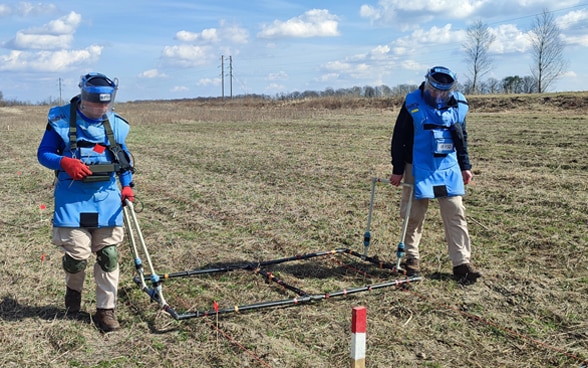- Home
- FDFA
- News
-
Dossiers
- Summit on Peace in Ukraine
- Support of the Confederation for the people affected by the war in Ukraine
- Switzerland in the UN Security Council
- International Cooperation (IC) Strategy 2025–28
- Pluralism
- The 2022 Federal Presidency: key messages and meetings
- Ukraine Recovery Conference (URC2022) in Lugano
- AVIS28 – Inspiring Switzerland to be ready for the future
- Sustainable Swiss embassies
- Diplomacy through the ages
- Swiss protecting power mandates for the United States and Cuba
- OSCE Chairmanship 2014
- Switzerland commemorates the victims of the Holocaust
- Switzerland's position on the Middle East conflict
- Swiss commitment to humanitarian demining in 2023
-
Support of the Confederation for the people affected by the war in Ukraine
- Support for the Lugano Principles
- Ukraine Mine Action Conference UMAC2024
- Ukraine Mine Action Conference UMAC2024
Ukraine Mine Action Conference UMAC2024
Switzerland and Ukraine jointly hosted the Ukraine Mine Action Conference UMAC2024 in Lausanne on 17–18 October 2024. The ‘Lausanne Call for Action’ was adopted at the Conference, calling on states to take concrete action in the area of humanitarian mine clearance . This is crucial for social and economic reconstruction. Switzerland is supporting Ukraine with its expertise and contributing CHF 100 million over a four-year period to clear civilian areas of mines.


